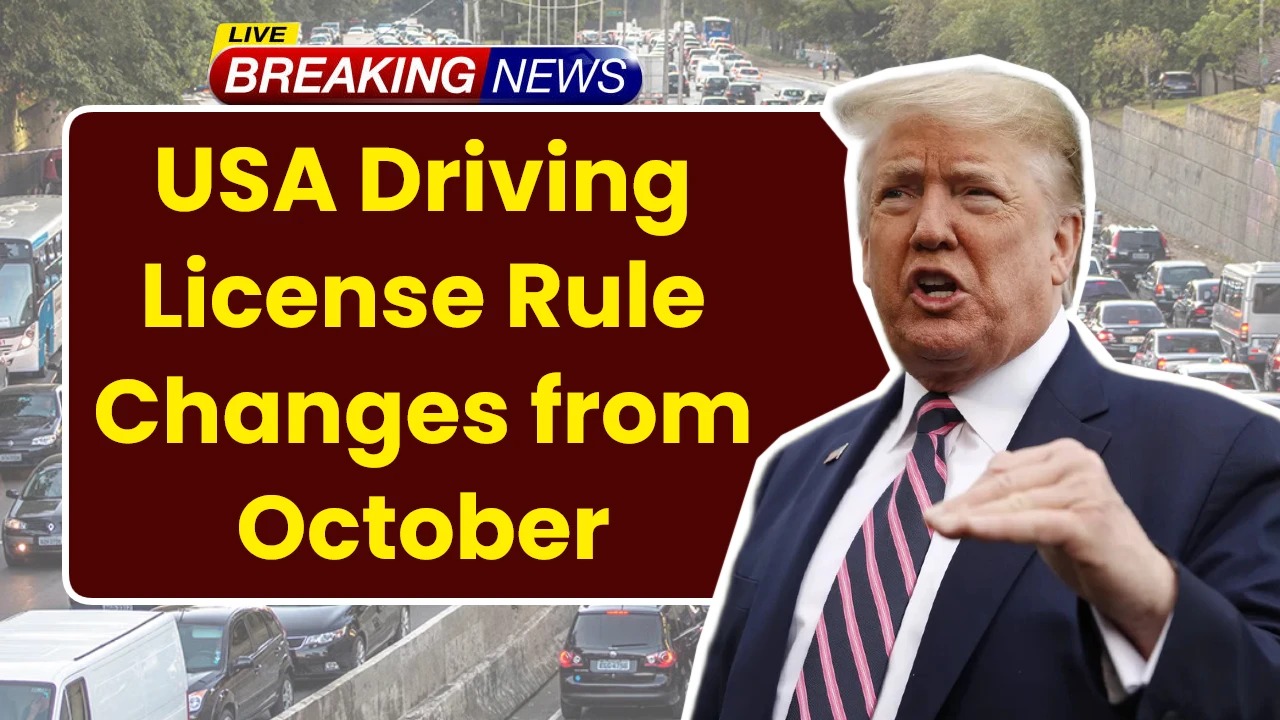Starting October 2025, new driving license regulations will take effect across several U.S. states, with specific updates aimed at senior drivers aged 65 and above. These changes focus on road safety, license renewal frequency, medical evaluations, and Real ID compliance. The adjustments are part of a nationwide effort to modernize licensing systems while ensuring that aging drivers remain safe and independent on the road.
Overview (Quick Table)
| Detail | Information |
|---|---|
| Policy Effective Date | October 1, 2025 |
| Target Group | Senior Drivers (Aged 65+) |
| Main Changes | Shorter renewal cycles, mandatory vision/medical checks, Real ID enforcement |
| Implementing Authority | U.S. Department of Transportation (DOT) and State DMV Offices |
| Purpose | Enhance safety, modernize identification, and update Real ID compliance |
Purpose of the Rule Changes
The U.S. government, in coordination with individual states, is implementing new driver’s license standards to improve both road safety and identity verification. For older adults, these adjustments ensure that health and vision requirements are met regularly, reducing risks of accidents caused by age-related impairments. Additionally, the rollout aligns with the Real ID federal standard, which strengthens identity security for air travel and federal building access.
Key Changes Taking Effect in October 2025
- Shorter Renewal Periods for Senior Drivers
Many states will reduce the renewal validity from 8–10 years to 4–5 years for drivers aged 65 and older. This means seniors will need to renew their licenses more frequently, allowing authorities to monitor health and vision changes more closely. - Mandatory Vision and Medical Assessments
Renewal applications will now include updated vision screening and, in some cases, medical clearance forms from a licensed physician. The goal is to confirm that senior drivers can safely operate a vehicle under normal and low-visibility conditions. - In-Person Renewal Requirements
While many adults can renew licenses online, seniors over 70 may be required to renew in person. This allows for photo updates, medical reviews, and confirmation of Real ID documentation. - Real ID Deadline Implementation
October 2025 is also the federal deadline for all U.S. citizens to hold a Real ID-compliant license for domestic flights and federal building entry. Seniors who haven’t upgraded their licenses will need to bring documents proving identity, legal presence, Social Security number, and residence to their local DMV. - Driving Retests in Certain States
Some states (including California, Florida, and Illinois) are introducing optional or mandatory retests for drivers above 75 years old. These may include written or on-road assessments to evaluate reaction times, vision, and awareness.
How Seniors Can Prepare
To avoid last-minute issues, seniors should start preparing early:
- Check your current license expiry date and schedule renewal at least two months before.
- Gather Real ID documents — birth certificate, passport, Social Security card, and two proofs of address.
- Visit an optometrist for a vision test to ensure you meet minimum eyesight requirements.
- Ask your doctor if your medications or health conditions could affect driving ability.
- Book a DMV appointment in advance since senior-specific renewals may take longer.
Benefits of the New Rules
- Enhanced safety on U.S. roads for all drivers and pedestrians.
- Improved medical oversight, ensuring seniors maintain safe driving standards.
- Streamlined identity verification with Real ID licenses, reducing travel delays and documentation issues.
- Increased independence for seniors who remain fit to drive, supported by official health clearance.
Why It Matters
With an aging population and millions of licensed drivers over 65, the rule changes emphasize safety without discrimination. The new system ensures seniors are supported rather than penalized — allowing continued mobility while reducing accident risks. It also helps modernize state DMV databases and meet long-delayed Real ID compliance goals nationwide.
Final Takeaway
Beginning October 1, 2025, all senior drivers in the U.S. should be aware of the new license renewal procedures, stricter vision checks, and Real ID requirements. Preparing early will help avoid delays, maintain legal driving status, and ensure safety for everyone on the road. Seniors are encouraged to contact their local DMV office for state-specific details and timelines.
FAQs
1. Will seniors lose their licenses under the new rules?
No, seniors will not automatically lose licenses. They will simply need to renew more often and pass required vision or health checks.
2. Is a driving test required for everyone over 70?
Not in all states. Some may request it based on medical reports or renewal evaluations.
3. What happens if I don’t have a Real ID by October 2025?
You can still drive, but you won’t be able to use your license for domestic flights or entry into federal facilities without another approved form of identification.
Official Source: U.S. Department of Transportation and State Department of Motor Vehicles (DMV).

